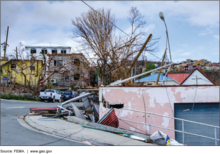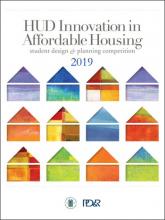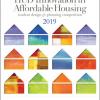0
Report
Community:
Feb 7, 2023

In the 2020-21 school year, more than 25 million children and youth – roughly half of all elementary and secondary students in the United States – attended schools in school districts that lacked dedicated funding to identify and support students experiencing homelessness. This significant funding gap increases the likelihood that many children and youth experiencing homelessness will not be identified, and even in cases where they are identified, that they will not receive the educational protections and services that can stabilize their education and their lives. Ensuring access to these supports is an important part of creating a school system that meets the needs of all our nation’s children and youth. SchoolHouse Connection and Poverty Solutions at the University of Michigan analyzed publicly-available preK-12 federal education data for the 2020-2021 school year to examine patterns that are correlated with under-identifying and inadequately supporting children and youth experiencing homelessness.
Authored by: SchoolHouse Connection and University of Michigan
Topics: Early childhood, Education, Funding, Homelessness, Low-income, Research, School-readiness, Stability, Youth
 Shared by Sandra Ware
Shared by Sandra Ware
Sandra Ware posted a
on Feb 21, 2023
SchoolHouse Connection and University of Michigan
In the 2020-21 school year, more than 25 million children and youth – roughly half of all elementary and secondary students in the United States – attended schools in school districts that lacked dedicated funding to identify and support students experiencing homelessness.
0
Video
Community:
Jun 17, 2022
Building off discussions during previous Summits, this panel will highlight research and promising practices on cash assistance for low-income individuals and families, including income supports stemming from the pandemic.
Authored by:
Topics: Advocacy, CLPHA, Funding, Housing, Legislation & Policy, Research
 Shared by Karina George
Shared by Karina George
Karina George posted a
on Jun 17, 2022
Building off discussions during previous Summits, this panel will highlight research and promising practices on cash assistance for low-income individuals and families, including income supports stemming from the pandemic.
0
Report
Community:
Jun 6, 2019
Trends in Housing Assistance and Who it Serves
Authored by: PAHRC
Topics: Community development, Disabilities, Education, Funding, Health, Homelessness, Housing, Legislation & Policy, Low-income, Partnerships, Research, Seniors, Workforce development, Youth
 Shared by Keely Stater
Shared by Keely Stater
Keely Stater posted a
on Sep 10, 2019
Trends in Housing Assistance and Who it Serves
0
Report
Community:
May 1, 2019
Child poverty is an urgent and preventable crisis. Solutions to child poverty already exist if we just expand and invest in them. Benefits like nutrition assistance, housing vouchers and tax credits helped lift nearly 7 million children out of poverty in 2017, but millions of children were left behind due to inadequate funding, eligibility restrictions and low wages. We can and must fix these problems to help more children escape poverty now.
Authored by: Children's Defense Fund
Topics: Child welfare, Dual-generation, Early childhood, Food insecurity, Funding, Housing, Legislation & Policy, Low-income, Research, Workforce development
 Shared by Housing Is
Shared by Housing Is
Housing Is posted a
on May 28, 2019
Child poverty is an urgent and preventable crisis. Solutions to child poverty already exist if we just expand and invest in them.
0
Video
Community:
May 9, 2019
On May 9, the Brookings Institution hosted an event to discuss the subsequent report, “A Roadmap to Reducing Child Poverty.” The event featured comments from Greg Duncan, who served as Chair of the Committee on Building an Agenda to Reduce the Number of Children in Poverty by Half in 10 Years, as well as a panel discussion on the report, its recommendations, and barriers to implementation. A second panel highlighted national and state policy perspectives of the consensus study report.
Authored by: The Brookings Institution
Topics: Early childhood, Funding, Housing, Legislation & Policy, Low-income, Research, Youth
 Shared by Housing Is
Shared by Housing Is
Housing Is posted a
on May 13, 2019
The Brookings Institution
On May 9, the Brookings Institution hosted an event to discuss the subsequent report, “A Roadmap to Reducing Child Poverty.” The event featured comments from Greg Duncan, who served as Chair of the Committee on Building an Agenda to Reduce the Number of Children in Poverty by Half in 10 Years, as we
0
News Article
Community:
May 6, 2019
A new study shows that Miami’s affordable housing crisis is so dire, the city needs at least 50,000 units just to meet the existing need. But the Connect Capital Miami Report, which was released Monday, also reveals a combination of tools and resources that could help alleviate the dearth of housing for cost-burdened residents.
Authored by: Rene Rodriguez for the Miami Herald
Topics: Funding, Housing, Legislation & Policy, Low-income, Research
 Shared by Housing Is
Shared by Housing Is
Housing Is posted a
on May 7, 2019
Rene Rodriguez for the Miami Herald
A new study shows that Miami’s affordable housing crisis is so dire, the city needs at least 50,000 units just to meet the existing need.
0
Publication
Community:
Apr 24, 2019
The Centers for Medicare and Medicaid Services (CMS) and states spend over $300 billion per year on the care of dually eligible individuals, yet still do not achieve acceptable health outcomes. In a 2016 study of social risk factors in the Medicare value-based purchasing programs, dual enrollment status was the most powerful predictor of poor outcomes. For example, relative to Medicare-only beneficiaries, dually eligible individuals had 10-31 percent higher risk-adjusted odds of hospital readmission across conditions measured in the Hospital Readmissions Reduction Program, and scores were lower for dually eligible individuals on nearly all (17 of 19) beneficiary-level quality measures in Medicare Advantage.
Authored by: Seema Verma for Health Affairs
Topics: Dual-eligibles, Funding, Health, Low-income, Medicaid / Medicare, Research, Seniors
 Shared by Housing Is
Shared by Housing Is
Housing Is posted a
on Apr 24, 2019
Seema Verma for Health Affairs
The Centers for Medicare and Medicaid Services (CMS) and states spend over $300 billion per year on the care of dually eligible individuals, yet still do not achieve acceptable health outcomes.
0
Report
Community:
Apr 8, 2019
While the program has changed very little since its inception, the need for the program has increased. In 1975, the number of program grantees stood at 594. Today, the number of grantees stands at 1,268 as more communities qualify to receive direct program allocations. Based on a CDBG Needs Survey conducted by the CDBG Coalition (and discussed later in this report), CDBG grantees have delayed and canceled projects and reduced or permanently eliminated programs because of a lack of CDBG funds. CDBG is an important investment tool for communities and neighborhoods, but program funding must increase to meet local need to ensure CDBG grantee communities are healthy, vibrant and thriving.
Authored by:
Topics: Community development, Funding, Health, Homelessness, Housing, Legislation & Policy, Low-income, Partnerships, Research, Safety, Seniors
 Shared by Housing Is
Shared by Housing Is
Housing Is posted a
on Apr 8, 2019
A report of the CDBG Coalition
While the program has changed very little since its inception, the need for the program has increased. In 1975, the number of program grantees stood at 594. Today, the number of grantees stands at 1,268 as more communities qualify to receive direct program allocations.
0
Report
Community:
Mar 25, 2019
Use of the $35 billion in federal Community Development Block Grant Disaster Recovery funds for the 2017 hurricanes has been slow. Over a year after the first funds were appropriated, much of the money remains unspent because grantees in Florida, Puerto Rico, Texas, and the U.S. Virgin Islands are still in planning phases. Also, the Department of Housing and Urban Development doesn't have the review guidance and monitoring plans it needs for good grantee oversight. We recommended ways to improve the oversight of disaster funding and better meet disaster recovery needs.
Authored by: U.S. Government Accountability Office
Topics: Community development, Funding, Housing, Legislation & Policy, Research, Safety, U.S. Territories
 Shared by Housing Is
Shared by Housing Is
Housing Is posted a
on Mar 26, 2019
U.S. Government Accountability Office
Use of the $35 billion in federal Community Development Block Grant Disaster Recovery funds for the 2017 hurricanes has been slow. Over a year after the first funds were appropriated, much of the money remains unspent because grantees in Florida, Puerto Rico, Texas, and the U.S.
0
Research
Community:
Feb 5, 2019
Housing is considered a social determinant of health, with poor housing conditions being associated with poor health. Veterans with disabilities are more likely to experience a housing crisis because of combat experiences and employment instability. We identified facilitators and barriers to finding and maintaining rental housing. We sought to understand the housing needs of Veterans with military-related disabilities using the biopsychoecological model (BEM) as an organizing framework.
Authored by: Semeah, Ahrentzen, Cowper-Ripley, Santos-Roman, Beamish, and Farley for Housing Policy Debate
Topics: Disabilities, Funding, Health, Homelessness, Housing, Legislation & Policy, Research, Safety, Seniors, Stability
 Shared by Housing Is
Shared by Housing Is
Housing Is posted a
on Mar 14, 2019
Semeah, Ahrentzen, Cowper-Ripley, Santos-Roman, Beamish, and Farley for Housing Policy Debate
Housing is considered a social determinant of health, with poor housing conditions being associated with poor health. Veterans with disabilities are more likely to experience a housing crisis because of combat experiences and employment instability.
0
News Article
Community:
Mar 7, 2019
Democrats this week announced new legislation that would slash child poverty by paying low-income parents the kind of monthly allowance that is standard in other developed countries. But the lawmakers who introduced the bill, called the American Family Act, didn’t use the terms “child benefit” or “child allowance” at their Capitol Hill press conference Wednesday. Instead, they all called it a tax credit or a tax cut.
Authored by: Arthur Delaney for HuffPost
Topics: Child welfare, Dual-generation, Early childhood, Funding, Legislation & Policy, Low-income, Research
 Shared by Housing Is
Shared by Housing Is
Housing Is posted a
on Mar 12, 2019
Arthur Delaney for HuffPost
Democrats this week announced new legislation that would slash child poverty by paying low-income parents the kind of monthly allowance that is standard in other developed countries.
0
Report
Community:
Welcome to the Food Research & Action Center’s winter issue of ResearchWire. This quarterly newsletter focuses on the latest research, reports, and resources from government agencies, academic researchers, think tanks, and elsewhere at the intersection of food insecurity, poverty, the federal nutrition programs, and health.
Authored by: Food Research & Action Center (FRAC)
Topics: Child welfare, Food insecurity, Funding, Health, Legislation & Policy, Low-income, Nutrition, Research, Youth
 Shared by Mica O'Brien
Shared by Mica O'Brien
Mica O'Brien posted a
on Feb 28, 2019
Food Research & Action Center (FRAC)
Welcome to the Food Research & Action Center’s winter issue of ResearchWire.
0
Video
Community:
Feb 13, 2019
U.S. House Committee on Financial Services, Full Committee
Authored by: U.S. House Committee on Financial Services
Topics: Funding, Homelessness, Housing, Legislation & Policy, Research, Stability
 Shared by Mica O'Brien
Shared by Mica O'Brien
Mica O'Brien posted a
on Feb 19, 2019
U.S. House Committee on Financial Services
U.S. House Committee on Financial Services, Full Committee
0
Research
Community:
Jan 10, 2019
Local officials, impact investors, and philanthropy have important roles to play in helping communities access Opportunity Zone financing that benefits current residents, especially those with low or moderate incomes. Using Chicago and Cook County as a case study, we identify steps these actors can take to attract helpful, and limit harmful, investments. We find that the Opportunity Zones selected in Chicago and Cook County broadly fulfilled the incentive’s spirit, targeting areas that were more economically distressed. Going forward, it will be necessary to leverage available policy and philanthropic levers to compel private action in line with community interests.
Authored by: Brett Theodos and Brady Meixell for the Urban Institute
Topics: Community development, Funding, Housing, Legislation & Policy, Midwest, Place-based, Research
 Shared by Housing Is
Shared by Housing Is
Housing Is posted a
on Feb 14, 2019
Brett Theodos and Brady Meixell for the Urban Institute
Local officials, impact investors, and philanthropy have important roles to play in helping communities access Opportunity Zone financing that benefits current residents, especially those with low or moderate incomes.
0
News Article
Community:
Dec 27, 2018
The nation’s public housing authorities are seeking closer links to health insurers and medical care providers to address social determinants of health.
Authored by: Bruce Japsen for Forbes
Topics: CLPHA, Funding, Health, Housing, Low-income, Medicaid / Medicare, Partnerships, Place-based, Research
 Shared by Mica O'Brien
Shared by Mica O'Brien
Mica O'Brien posted a
on Jan 7, 2019
The nation’s public housing authorities are seeking closer links to health insurers and medical care providers to address social determinants of health.
0
Report
Community:
May 1, 2018
Housing and health systems need to work together. Public housing authorities (PHAs) are significant providers of housing to those in need, offering the health sector scale and expertise. Little was known about how PHAs worked with the health sector writ large. With a national survey, we found that PHAs across the country are engaged in a wide range of partnerships with different health organizations that address various target populations and health priorities. Barriers to housing-health collaboration, such as funding and staffing capacity, can be overcome with cross-system partnerships that seek to address these needs.
Authored by: CLPHA and PAHRC
Topics: Child welfare, Funding, Health, Housing, Low-income, Medicaid / Medicare, Partnerships, Preventative care, Research, Seniors, Smoke-free
 Shared by Housing Is
Shared by Housing Is
Housing Is posted a
on Dec 19, 2018
Housing and health systems need to work together. Public housing authorities (PHAs) are significant providers of housing to those in need, offering the health sector scale and expertise. Little was known about how PHAs worked with the health sector writ large.
0
Policy Brief
Community:
Dec 12, 2018
In many US cities and towns, housing costs are increasing faster than incomes. Americans who rent their homes have been hit especially hard: nearly half of renters shoulder unaffordable housing costs. A forthcoming report by the New York University Furman Center for Real Estate and Urban Policy shows that between 1970 and 2016, the share of rent-burdened households went up in the 100 largest metropolitan areas nationwide.
Authored by: Ingrid Gould Ellen and Mark A. Willis for How Housing Matters (Urban Institute)
Topics: Funding, Housing, Legislation & Policy, Research
 Shared by Mica O'Brien
Shared by Mica O'Brien
Mica O'Brien posted a
on Dec 13, 2018
Ingrid Gould Ellen and Mark A. Willis for How Housing Matters (Urban Institute)
In many US cities and towns, housing costs are increasing faster than incomes. Americans who rent their homes have been hit especially hard: nearly half of renters shoulder unaffordable housing costs.
0
Webinar
Community:
Dec 11, 2018
CLPHA’s Education Working Group hosts a webinar including presentations on efforts from the Chicago Housing Authority to work with residents on pursuing postsecondary opportunities, as well as an update from HUD’s Office of Policy Development & Research on data collection around tracking and increasing FAFSA utilization.
Authored by: CLPHA
Topics: CLPHA, Cost effectiveness, Data sharing, Education, Funding, Housing, Housing Is Working Group, Low-income, Metrics, Midwest, Post-secondary, Research, Stability, Youth
 Shared by Mica O'Brien
Shared by Mica O'Brien
Mica O'Brien posted a
on Dec 12, 2018
CLPHA’s Education Working Group hosts a webinar including presentations on efforts from the Chicago Housing Authority to work with residents on pursuing postsecondary opportunities, as well as an update from HUD’s Office of Policy Development & Research on data collection around tracking and inc
0
News Article
Community:
Dec 11, 2018
A mailer sent to low-income students with that promise led to a major jump in enrollment at the University of Michigan, according to a new study.
Authored by: Adam Harris for The Atlantic
Topics: Education, Funding, Low-income, Post-secondary, Research, Youth
 Shared by Housing Is
Shared by Housing Is
Housing Is posted a
on Dec 11, 2018
Adam Harris for The Atlantic
A mailer sent to low-income students with that promise led to a major jump in enrollment at the University of Michigan, according to a new study.
0
Report
Community:
Oct 24, 2018
CLPHA’s Housing Is Initiative is engaged in a number of cross-sector activities focused on developing partnerships, facilitating a community of practice, resource development, promoting best practices, online collaboration, policy and advocacy, and training and education. Read about recent activities in this Fall Update.
Authored by:
Topics: Child welfare, CLPHA, Community development, Cost effectiveness, Data sharing, Early childhood, Education, Family engagement, Funding, Health, Homelessness, Housing, Low-income, Medicaid / Medicare, Mental health, Partnerships, Place-based, Post-secondary, Research, Stability, Substance abuse, Workforce development, Youth
 Shared by Mica O'Brien
Shared by Mica O'Brien
Mica O'Brien posted a
on Oct 24, 2018
CLPHA’s Housing Is Initiative is engaged in a number of cross-sector activities focused on developing partnerships, facilitating a community of practice, resource development, promoting best practices, online collaboration, policy and advocacy, and training and education.
0
Interactive
Community:
HUD’s Office of Policy Development and Research (PD&R) is pleased to announce the 2019 Innovation in Affordable Housing (IAH) Student Design and Planning Competition. The competition encourages multidisciplinary graduate student teams to submit innovative solutions for a real-world affordable housing project that incorporate design, planning, finance, and larger community elements.
Authored by: PD&R Edge Online Magazine
Topics: Funding, Housing, Low-income, Partnerships, Research
 Shared by Mica O'Brien
Shared by Mica O'Brien
Mica O'Brien posted a
on Oct 10, 2018
PD&R Edge Online Magazine
HUD’s Office of Policy Development and Research (PD&R) is pleased to announce the 2019 Innovation in Affordable Housing (IAH) Student Design and Planning Competition.
0
Research
Community:
Oct 1, 2018
Although the rental assistance programs varied, key themes emerged, including (1) most programs, recognizing the impact of housing stability on health outcomes, targeted populations served by state or local health and human services programs; (2) most programs served a growing number of households over time; (3) funding generally increased over time and most of it came from general revenue; and (4) programs involved collaboration between the housing and health and human services agencies to ensure clients’ needs were comprehensively met.
Authored by: Anna Bailey, Peggy Bailey, and Douglas Rice for the Center on Budget and Policy Priorities
Topics: Funding, Health, Housing, Legislation & Policy, Low-income, Partnerships, Place-based, Research, Stability
 Shared by Mica O'Brien
Shared by Mica O'Brien
Mica O'Brien posted a
on Oct 9, 2018
Anna Bailey, Peggy Bailey, and Douglas Rice for the Center on Budget and Policy Priorities
Although the rental assistance programs varied, key themes emerged, including (1) most programs, recognizing the impact of housing stability on health outcomes, targeted populations served by state or local health and human services programs; (2) most programs served a growing number of households o
0
Podcast
Community:
Aug 15, 2018
Evidence shows that investing in children today can decrease poverty for the next generation of adults. Host Justin Milner speaks with researchers Heather Hahn and Cary Lou about the federal government’s current spending on kids, future projections for this spending, and what that means for America’s children.
Authored by: Urban Institute
Topics: Child welfare, Early childhood, Education, Funding, Legislation & Policy, Research, Youth
 Shared by Mica O'Brien
Shared by Mica O'Brien
Mica O'Brien posted a
on Sep 18, 2018
Evidence shows that investing in children today can decrease poverty for the next generation of adults.
0
Publication
Community:
Aug 9, 2018
Systems for Action (S4A) is a national program of the Robert Wood Johnson Foundation (RWJF) that aims to discover and apply new evidence about ways of aligning the delivery and financing systems for medical, social, and public health services that support a Culture of Health. This program, as well as RWJF’s other three signature research programs, Evidence for Action, Policies for Action, and Health Data for Action (launching April 19, 2017), are investigating the impact of different types of programs, policies, and health-related systems on health, equity and well-being.
Authored by:
Topics: Funding, Health, Housing, Partnerships, Research
 Shared by Housing Is
Shared by Housing Is
Housing Is posted a
on Aug 9, 2018
Systems for Action (S4A) is a national program of the Robert Wood Johnson Foundation (RWJF) that aims to discover and apply new evidence about ways of aligning the delivery and financing systems for medical, social, and public health services that support a Culture of Health.
0
Report
Community:
Aug 9, 2018
The Colorado Coalition for the Homeless created the Denver Housing First Collaborative (DHFC) in 2003 with funding provided by a collaboration of federal agencies. The DHFC involved CCH as the lead agency, Denver Department of Human Services (DDHS), Denver Health (DHHA), Arapahoe House, the Mental Health Center of Denver (MHCD) and the Denver VA Medical Center. The DHFC is designed to provide comprehensive housing and supportive services to chronically homeless individuals with disabilities. Initial federal funding created the capacity to house and serve 100 chronically homeless individuals. The program uses a housing first strategy combined with assertive community treatment (ACT) services, providing integrated health, mental health, substance treatment and support services.
Authored by:
Topics: Cost effectiveness, Funding, Health, Homelessness, Housing, Pacific Northwest, Partnerships, Research, Stability, Supportive housing
 Shared by Housing Is
Shared by Housing Is
Housing Is posted a
on Aug 9, 2018
The Colorado Coalition for the Homeless created the Denver Housing First Collaborative (DHFC) in 2003 with funding provided by a collaboration of federal agencies.


 Shared by Sandra Ware
on Feb 21, 2023
Shared by Sandra Ware
on Feb 21, 2023

 Shared by Karina George
on Jun 17, 2022
Shared by Karina George
on Jun 17, 2022

 Shared by Keely Stater
on Sep 10, 2019
Shared by Keely Stater
on Sep 10, 2019

 Shared by Housing Is
on May 28, 2019
Shared by Housing Is
on May 28, 2019
 Shared by Housing Is
on May 13, 2019
Shared by Housing Is
on May 13, 2019

 Shared by Housing Is
on May 7, 2019
Shared by Housing Is
on May 7, 2019


 Shared by Housing Is
on Apr 24, 2019
Shared by Housing Is
on Apr 24, 2019

 Shared by Housing Is
on Apr 8, 2019
Shared by Housing Is
on Apr 8, 2019

 Shared by Housing Is
on Mar 26, 2019
Shared by Housing Is
on Mar 26, 2019

 Shared by Housing Is
on Mar 14, 2019
Shared by Housing Is
on Mar 14, 2019
 Shared by Housing Is
on Mar 12, 2019
Shared by Housing Is
on Mar 12, 2019
 Shared by Housing Is
on Feb 14, 2019
Shared by Housing Is
on Feb 14, 2019
 Shared by Housing Is
on Dec 19, 2018
Shared by Housing Is
on Dec 19, 2018

 Shared by Housing Is
on Dec 11, 2018
Shared by Housing Is
on Dec 11, 2018



 Shared by Housing Is
on Aug 9, 2018
Shared by Housing Is
on Aug 9, 2018
 Shared by Housing Is
on Aug 9, 2018
Shared by Housing Is
on Aug 9, 2018